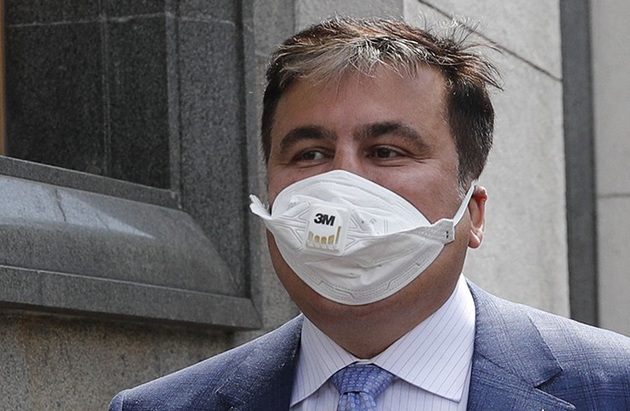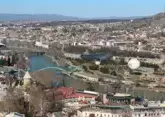On March 1, European Council President Charles Michel met in Tbilisi with Georgian President Salome Zurabishvili and Prime Minister Irakli Garibashvili. Reportedly, the two sides were predominantly going to discuss the COVID-19 pandemic as well as cooperation between Georgia and the European Union under the 2014 Association Agreement. However, the top EU representative’s trip to Georgia notably occurred against the background of a growing political crisis in this South Caucasus republic, marked acutely by the recent arrest of Nikanor Melia, who chairs the largest and most influential opposition party, United National Movement (UNM). As such, while visiting the Georgian capital, Michel also separately sat down with leaders of the main opposition parties, The Jamestown Foundation writes.
Michel and Western diplomats, including United States Ambassador Kelly C. Degnan and EU delegation head Karl Hartzel, have for months been trying to push Georgia’s rival political factions to compromise, but the ruling Georgian Dream (GD) and the “United Opposition” (UO—which includes UNM) see the issue of holding early elections as an irreconcilable “red line.” The UO claims the results of last autumn’s parliamentary elections were “totally falsified,” while GD denies any significant fraud took place. This past January, Parliamentary Speaker Archil Talakvadze reiterated that the general elections “have already occurred on October 31, 2020, and the next will be held in 2024”.
After the arrest of the UNM party chairperson, the opposition leaders declared that any substantive negotiations with the ruling party would be possible only after “the release of all political prisoners,” including Melia. “It makes no sense to negotiate with a government that arrests people for political reasons,” UNM parliamentary deputy Roman Gotsiridze said in a February 27 interview with this author.
At the same time, on Tbilisi’s central Rustaveli Avenue, in front of the national legislature, the opposition is holding a long-term anti-government protest. On February 26, at the beckoning and direction of UNM’s founder, former president Mikhail Saakashvili, and other opposition leaders, several thousand UO supporters converged on the parliament building. One of the UNM’s top officials, former Ukrainian National Police head Khatia Dekanoidze, read out Nikanor Melia’s statement the latter posted from prison. Namely, Melia called on “all freedom-loving Georgians” to take to the streets to “preserve the country’s independence” and with the aim of “achieving the release of political prisoners”—not only him but additionally television channel Mtavari Arkhi founder Giorgi Rurua.
Demonstrators set up 11 tents near the parliament, and then opposition leaders unveiled their plan for a “permanent protest movement.” This would involve picketing the parliament during plenary sessions, organizing “corridors of shame” for ruling GD deputies, picketing the State Chancellery (where the office of Prime Minister Garibashvili is located), rallying outside the city court that had ordered Melia’s arrest earlier this month, as well as holding large-scale actions on Rustaveli Avenue.
The first such action took place on March 1: several non-governmental organizations (NGO) staged a march toward the former residence of billionaire Bidzina Ivanishvili, who recently announced that he was leaving politics and stepping down as party chairperson of GD.
The events in Georgia spotlight the apparently rebounding political influence inside the country of former president and UNM leader Mikheil Saakashvili, who presently resides abroad. In Kyiv, Saakashvili heads the Executive Committee of the National Council of Reforms in Ukraine.
Just prior to Melia’s arrest, Saakashvili warned that if the authorities dared to storm UNM’s party offices, he would respond with “the most decisive measures”. Saakashvili did not rule out that after the start of mass protests, he would return to Georgia from Ukraine. After the special forces of the Ministry of Internal Affairs forcibly entered the UNM office and apprehended Melia, the former president accused the ruling party and Ivanishvili of establishing a “Belarusian-type” dictatorship; he also proclaimed that “the introduction of the Russian model” is taking place in Georgia. Saakashvili called for new elections under international control and announced his party’s plans to “mobilize the people.” In response to whether he was readying to come back to Georgia, the former president said, “I will definitely return at some point, but I always wanted to avoid chaos, bloodshed and civil clashes.” Since the beginning of the political crisis, Saakashvili has been speaking almost daily on Georgian opposition TV channels, promising “to free his homeland from the shameful rule of the Russian oligarch, Putin’s slave, the largest shareholder of Gazprom, Bidzina Ivanishvili [sic]”.
Days before his detainment, Nikanor Melia made some soft and diplomatic statements about the UO’s readiness to begin negotiations with GD and the Garibashvili government . Some experts, thus, concluded that Melia was consciously choosing less radical rhetoric and different tactics from those advocated by the party’s founder, Saakashvili. But as Gela Vasadze, the director of regional programs at the Center for Strategic Analysis of Georgia, told this author, “It makes no sense to speculate about the disagreement between Saakashvili and Melia when the government itself has not offered any compromise options. […] The authorities chose the scenario of violence.” Moreover, Vasadze argued, even though the former president is not physically in the country, he is “much more influential” than Melia because “Saakashvili has the financial resources of his businessmen friends, a large electoral base and even ‘support groups’ in the military and law enforcement establishment, which are in the hands of Saakashvili”.
Perhaps the last chance for compromise between the authorities and the opposition may hinge on the government granting a “general amnesty” to all opposition politicians arrested or charged by the Prosecutor’s Office since GD came to power in 2012. Saakashvili himself hinted about such an option in an interview with TV Pirveli (though he did not say directly or unequivocally that this is what he was calling for). The UNM founder was sentenced to 3–6 years in prison for abuse of power during his presidency. An amnesty would enable him to return to Georgia and resume his political activities.
Nonetheless, such a proposal is unlikely to be acceptable to Garibashvili’s government. The 38-year-old prime minister said that, in Georgia, “everyone is equal before the law,” and those who break the law “must be punished”. Garibashvili clearly had in mind not only the UNM chairperson, Melia, but also former president Saakashvili. On March 1, talks resumed between the government and opposition, hosted by the Georgian president. It will become apparent soon whether anything comes of this latest round of discussions.










